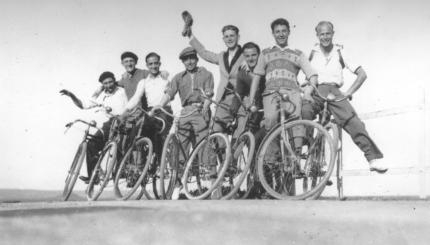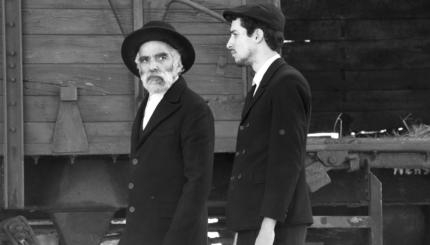Originally published in the Jerusalem Post (November 18, 2005).
In A Room of One’s Own, Virginia Woolf famously envisioned the life of William Shakespeare’s imaginary sister, Judith. Like William, Judith is a gifted child with literary impulses. But unlike William, she is denied an education, forced to marry against her will, and laughed away from the theatre.
“This may be true or it may be false,” wrote Woolf, “but what is true in it, so it seemed to me, reviewing the story of Shakespeare’s sister as I had made it, is that any woman born with a great gift in the sixteenth century would certainly have gone crazed, shot herself, or ended her days in some lonely cottage outside the village, half witch, half wizard, feared and mocked at.”
Though she probably didn’t know it, Woolf had a modern Judith living in her own backyard.
Esther Singer Kreitman (1891-1954) was the sister of two successful Yiddish writers, Israel Joshua Singer and the Nobel Prize winner Isaac Bashevis Singer. Like Woolf’s Judith, Kreitman was denied the education of her brothers and never attained their level of literary prestige. Yet Kreitman did achieve a measure of professional success.
Kreitman’s first book Der Sheydim Tants (The Devils’ Dance) was published in Yiddish in 1936 and in English, as Deborah, in 1946 (this translation was republished in 2004 by David Paul Books, London and The Feminist Press, New York). Deborah is a semi-autobiographical work about a girl with an intense curiosity about life and learning who is, nonetheless, sheltered and belittled by her family. Deborah’s father is a rabbi, and the book follows the family as it moves from small town to small town, before finally landing in the bustling metropolis of Warsaw. Here Deborah pursues independence by, among other things, experimenting with socialism, but eventually she is instated in a loveless marriage with a man from Antwerp.
In considering Woolf’s imagined Judith, it’s tempting to do our own imagining. Kreitman was living in England when Der Sheydim Tants was published. What would Woolf have thought if she’d paid her a visit? Perhaps Woolf would have been encouraged by Kreitman’s writing, but no doubt, she would have been disturbed by Kretiman’s predicament, as well.
For Woolf, writing in the 1920s, the definition and identity of women’s literature was still pending. Because there was no tradition of women’s literature, women were forced to write in styles inspired by male modes that didn’t fit them. “The weight, the pace, the stride of a man’s mind are too unlike her own for her to lift anything substantial from him successfully.” In other words, fiction written by women could be equally patriarchal.
For all its merits–and there are many–Kreitman’s Deborah reflects this condition. Though Deborah is obviously the novel’s main character, the story is not told from her point of view and she disappears for pages at a time. Kreitman’s other female characters suffer bouts of absence as well. One such character is the wife of the Tsadik of “R.” Compared to her corrupt husband, the Tsadik’s wife is portrayed as a kind, sophisticated woman. Her company is one of the few things Deborah’s depressive mother enjoys, and she helps Deborah’s father when her miserly husband withholds his salary. Then she vanishes from the narrative without a trace.
Esther Singer Kreitman was no Judith Shakespeare. Though she is not as widely read or remembered as her two brothers, her work endures. And yet, despite having the opportunity to write and publish, she internalized the literary patriarchy she struggled against. Deborah is about a young woman struggling for visibility, but the novel’s absences are blinding.


